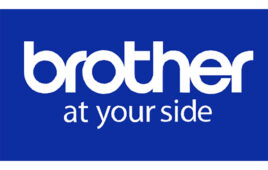Creating a more frictionless experience for shoppers remains a hot button issue, as c-store retailers weigh when, where and how to reduce pain points for customers, especially at checkout.
CStore Decisions asked Crone Consulting LLC’s CEO Richard Crone and Managing Partner Heidi Liebenguth to share their insights on what retailers should consider before embarking on a journey to reduce friction.

Richard Crone, CEO, Crone Consulting LLC
CStore Decisions (CSD): What does frictionless really mean to a retailer?
Richard Crone & Heidi Liebenguth: Imagine a shopping nirvana. There would be no friction, only the enjoyment of finding what you really wanted at an affordable price, in a stimulating — or relaxing — environment that delights the senses. Is this faster? Not necessarily. It is pleasurable, taking as much time as the customer wants to spend. Frictionless would remove the aggravation of digging through things you don’t want, of standing around unproductively, of not being able to obtain your goals.
CSD: How do smaller retailers truly achieve a frictionless experience?
RC & HL: Retailers can achieve personalization frictionlessly by emulating the Uber experience. For example, instead of searching or calling a number; customers push a button on their phone. There’s no uncertainty in transcription; customers dictate their destination. Cost, time and route are shown before their ride arrives. Instant feedback is available. There’s no delay at checkout because the customer is already known and pre-authorized. When they’re done, they just walk out.
C-store retailers too can interact one-to-one at scale using frictionless check-in. Inviting customers to interact, share buying intent (responsive text, shopping lists, augmented voice and so on), providing tailored offers and customizing their in-store journey. As with Uber, the best way to do this is with a pre-authenticated known customer within the retailer’s own Five Star-rated app, augmented by computer vision and artificial intelligence.
C-stores don’t have to go it alone or be left out of these capabilities because there are more than 22 suppliers we are tracking closely, providing turn-key platforms for retrofitting legacy retail formats. Caveat Emptor: the varying approaches require careful due diligence before handing over the keys to your checkout stations.
CSD: What problem(s) is frictionless checkout technology trying to solve?
RC & HL: Ideally, frictionless checkout would eliminate waste: Wasted time on the part of consumers, wasted space for retailers and wasted promotional dollars for retailers and brands advertising items consumers don’t want.
The biggest problem isn’t checkout — it’s check-in — because most retailers don’t know who their customers are. Only by knowing the customer, their wants and needs, can a retailer deliver the right stuff to the right person at the right time.
The promise of autonomous check-in is personalizing the shopping journey at scale. That’s why any form of “anonymous” autonomous checkout is a race to the bottom and commoditization.
Retailers need to define a comprehensive “check-in” strategy before donating to others the life-blood of their merchandising concept, namely their SKU-level, in-aisle and in-store data. Lacking this, retailers risk being further commoditized and removed from their customer relationships, especially when their customers checkout autonomously through third-party intermediaries. Caveat Emptor.
To avoid commoditization retailers must personalize every service interaction, which can only be achieved by understanding purchase intent with a pre-authorized known customer before checkout, enhancing the shopping experience, regardless of channel and touchpoint. That is why “check-in” is the new “checkout.”

Heidi Liebenguth, managing partner, Crone Consulting LLC
CSD: What is the biggest disruption you see on the horizon in the digital retail space and where does autonomous checkout fit in?
RC & HL: Run the reel forward and presume autonomous checkout works flawlessly: eliminating the need for checkout stations, point-of-sale hardware and freeing up space for new retail concepts like the Apple store. In this world all payments are “person present” with no chargebacks or return fraud because customer purchases are pre-authenticated with a video audit trail at the in-aisle, shelf and SKU-level.
The first vendor to achieve this for a legacy retailer will spark a feeding frenzy of mergers and acquisitions among the startups in the space, triggered by big retailers or the Big Nine AI (artificial intelligence) superpowers motivated to keep the technology and the data out of the hands of competitors.
Bringing the search and tracking capabilities of e-commerce into the in-store experience is certain to disrupt retail as we know it — but to whose benefit?
Retailers can use this new real-time data to form closer bonds with their customers and to provide exactly what they want, perhaps before they know they want it. Only “check-in” enables personalization during the shopping experience with a first viewer advantage, just as Google, Amazon and Facebook know their customers and use the data to curate highly personal user experiences at scale, reaping monopoly rents from advertisers for doing so. Doing nothing is not a strategy.
The risk is that third-party aggregators use this same data to build loyalty to their own platforms, conscripting participating retailers into data-producing vending machines building unicorn value for others.
Third-party intermediaries such as Grubhub control the data, user interface and build loyalty, while charging restaurants up to 30% when diners check out anonymously through their branded platforms. Participating in proof-of-concept pilots without first defining your “check-in” strategy and data rights is risky.
If retailers expect to check-in, listen, interact and deliver frictionless personal value to their customers on a continuous basis, it’s best done through their own Five Star rated-app and not through third-party intermediaries. Our rule for retailers to guide their strategy: The One Who Enrolls is the One Who Controls.
Heidi Liebenguth is managing partner and Richard Crone is CEO of Crone Consulting LLC, an independent advisory providing market insight and self-service strategy for retailers. Crone will be speaking as part of the frictionless checkout session at the National Advisory Group Conference this September. To register go to nagconvenience.com.




